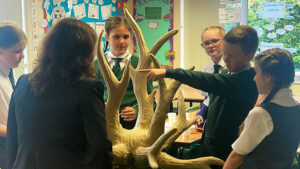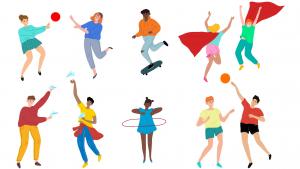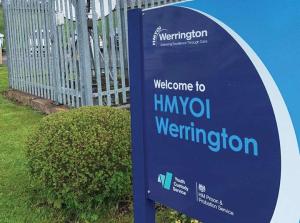Tens of thousands of politicians, journalists, activists and industry representatives have descended upon Glasgow this week, as the city plays host to COP26. Otherwise known as the 2021 United Nations Climate Change Conference, COP26 is the biggest climate change event since the 2015 Paris Agreement. Countries will set out what they intend to do to meet their shared goal of limiting global warming to well below 2 degrees Celsius – ideally to 1.5 degrees.
Climate change affects all of us, but, those with the most at stake are children.
This fact is not lost on children. Earlier this year, the Children’s Commissioner’s Office undertook the Big Ask – the largest ever survey of children, which secured an enormous half a million responses. Children spoke about a whole range of issues, but a clear priority that emerged was their concern and passion for the environment. 39% said that the environment was one of their main worries about the future, making it the second most common answer. One 12‑year‑old told us, “If we don’t fix climate change, we won’t have a future.” While, a 15 year old said, “the effects of it may be irreversible, and it is very daunting for young people to have the responsibility of dealing with its effects.”
As well as voicing their concerns, children spoke of feeling frustrated that they were inheriting the problem from older generations, who they felt weren’t taking it seriously. One 13 year old girl said: “I think I speak for many young people here when I say that our local and wider community could do so much more to help preserve biodiversity in big communities or small.”
All this means that children desperately want their voices to be heard when it comes to climate change – to be involved in the discussion, and to work with adults, governments and communities to solve the challenges. Children feel that they are not being allowed to contribute: “We simply wish to be a part of the conversations […] we get that we still have a lot to learn, but we also have a lot to bring to the table.”
COP26 is an incredible opportunity to change that. It is a chance for us to show children that we hear their anxieties about climate change, and that we are ready to work with them on the solutions. COP26 President Alok Sharma responded to the publication of the Big Ask, saying that he had heard young people’s concerns and had “relayed that message to governments, businesses and organisations wherever I go.”
I am delighted to be attending COP26 myself to help facilitate these conversations and to share everything we have learnt about children’s views on these issues through the Big Ask. One event I am particularly looking forward to is a ‘Teach the Teacher’ event with Mock COP – a youth led climate change campaign – in which young people will deliver a lesson on sustainability and climate change to myself, senior officials from the Department for Education and other guests. I’m also excited to see a group of 11-14 year olds interviewing winners of the Earthshot Prize about what it took to win the award and how they develop their ideas to repair the planet.
We need to keep engaging children on environmental issues in the coming weeks, months and years, as the nation strives to meet the ambitious targets that have been set. That includes finding out children’s ideas about what we can all do to reach Net Zero by 2050 – reducing greenhouse gas emissions so that the amount we produce is offset by the amount removed from the atmosphere. COP26 is set to be a great start to involving children in discussions around climate change, but it cannot be the end.
Children’s energy, enthusiasm and sense of hope is one of the nation’s biggest assets in our fight against climate change. Let’s use it.






